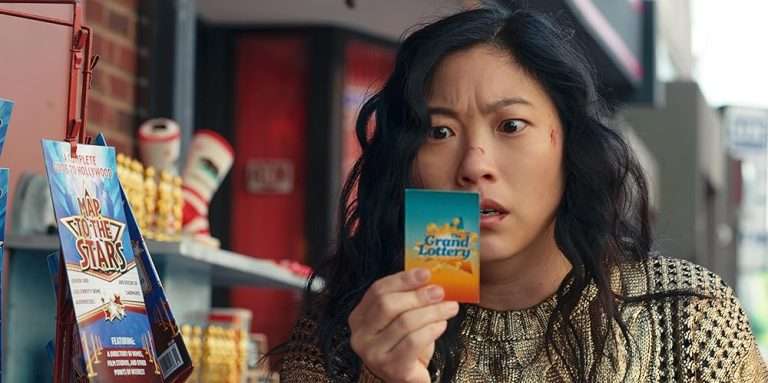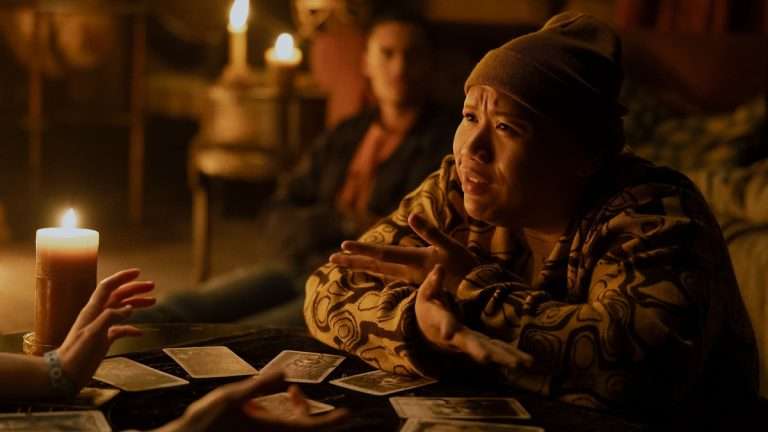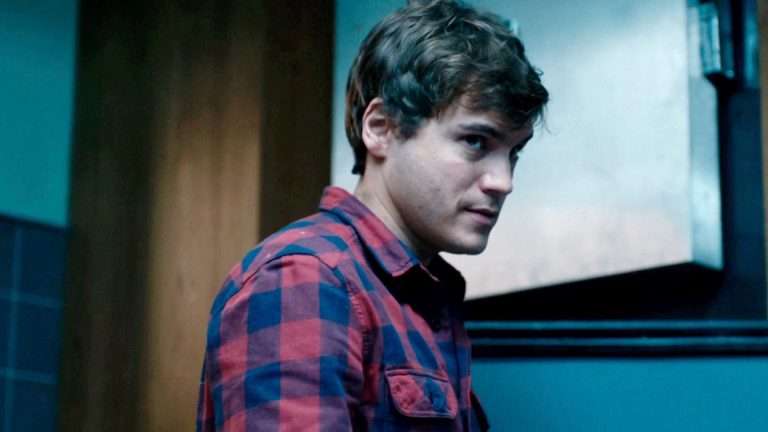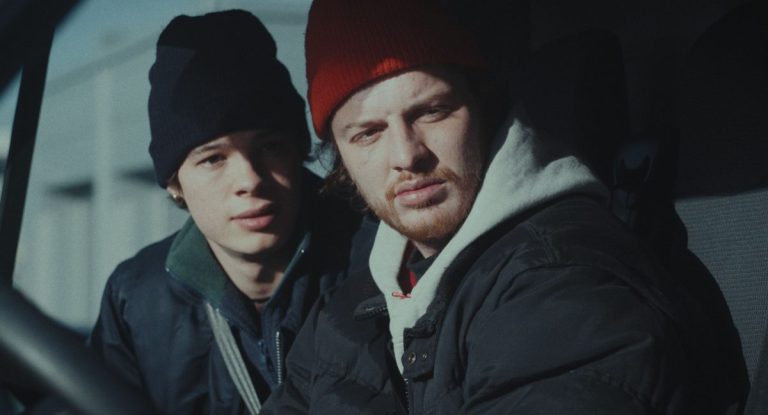“Nothing is made like it used to be,” says one of the characters in Adrian Langley’s rendition of Edgar Allan Poe’s “The Oval Portrait.” The line doesn’t just describe the eternal love for old things that the characters in the film represent, but also explains just how nostalgic the filmmaker is about the gone-by era. From the cold, wordless opening sequence to occasionally overbearing orchestral music that evokes a time when horror was all about characters and the way they navigate the central mystery or dread, the film exudes a compassion for a cinema that we are slowly forgetting.
While this might all sound like high praise for a film that aims to coast by on vibes alone, it’s surprising that the filmmaker, despite a low budget, manages to develop the central characters before throwing them into a mystery that they need to resolve or come out of. What it does is provide a groundwork that allows it to be beyond a vengeful ghost tale. The result is a slow-burn that earns its stupifying ending, making it feel earnest and genuine.
The film follows three main characters, namely Ava (Pragya Shail), Whitlock (Michael Swatton), and Julian (Paul Thomas). All three of them somehow connect back to the titular Oval Portrait, which is situated within the antique shop owned and run by Whitelock.
He is the kind of stoic, old-school gentleman whose love for old things emerges out of his liking for them – but there’s also a kind of obligation we seem to observe when we see him orchestrate a ritualistic routine he follows day in, day out. We never see him go out of a shop – a major red hearing that we later come to realize is all part of his existence. But as a character alone, Whitelock is aggressively mysterious – captivating and someone who can erupt at any time, but somehow doesn’t.
Julian is a petty criminal who has been assigned to steal the titular portrait by Grayson (Simon Philips), who wants it in his possession because his father is obsessed with it. While this part of the film could have used a little more polishing, I liked that the internal world of this criminal circle is also well-defined. I mean, after the first unsuccessful attempt to steal the portrait, you would assume the filmmaker and the criminal would just stick to basics and do it on their own, but again, filmmaker Adrian Langley doesn’t resort to hysterics by compromising on the tone that he beautifully balances here.
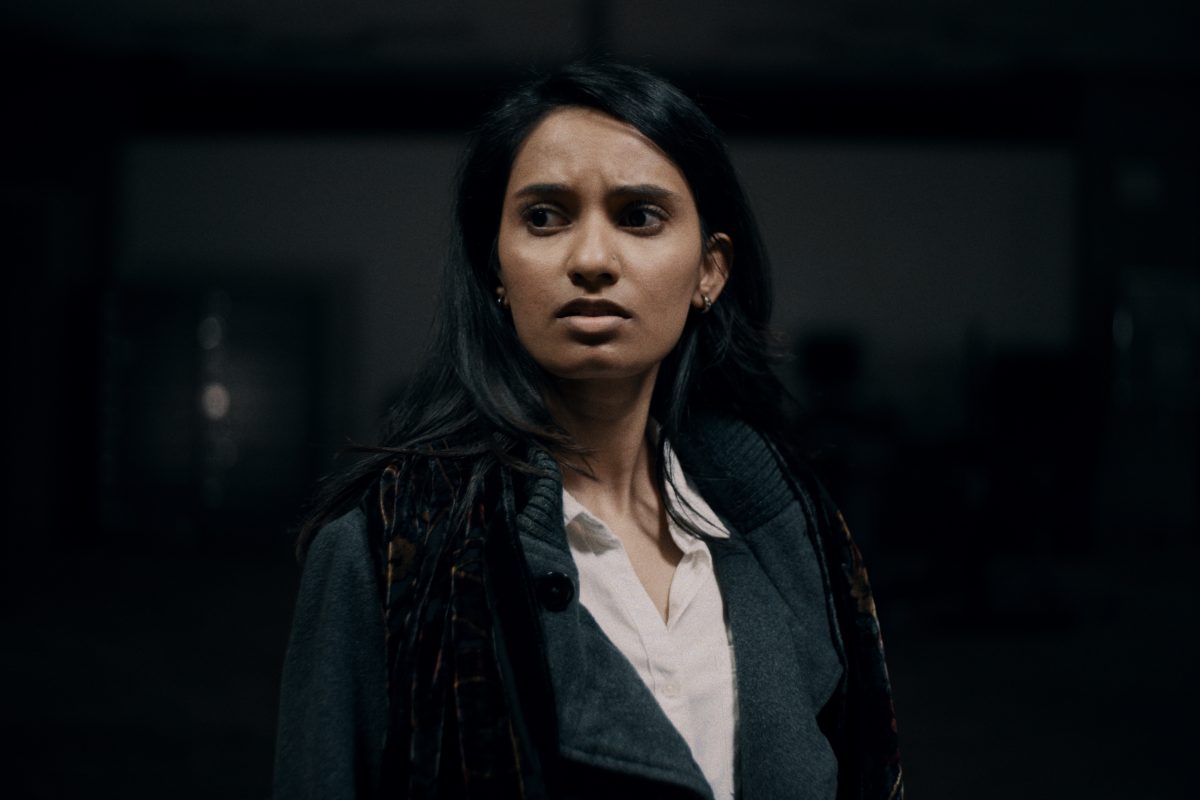
However, the narrative’s main feather hangs in the balance around Ava, who is played with great conviction by Pragya Shail. Playing a woman of Indian origin, I am glad she is not reduced to a stereotype. Ava is a working woman who does not own a cellphone or a computer. Being an artist at heart, she works for a classic magazine that fires her because they are downsizing. It doesn’t help that she is also dumped by her good-for-nothing boyfriend just days before it. What it does for her, however, is help her pursue her long-lost love for painting – also leading her to Whitlock’s doorstep.
Now, the transactional relationship that Ava and Whitelock develop over a period of a couple of meetings forms the crux of “The Oval Portrait.” Despite this not being a romantic, or precisely anything more than a transaction, you genuinely feel invested in the idea of paleophiles connecting with each other beyond anything else.
Some of the dialogue does feel stilted and out of place – especially regarding the theft aspect of the film, but beyond that, Langley’s reworking of Edgar Allen Poe’s prose (which is only two pages long) feels neatly done. Some of the groundwork might not sit right with an audience used to things falling into place like puzzles being arranged, but it’s always welcoming to see a film that does not take its audience for granted.
That said, the dread that is accentuated by a supernatural entity could have been done a little better. The overbearing score can sometimes take you out of sequences that don’t necessarily need it. The gothic horror-esque representation also doesn’t land in quite the way it was intended to, but overall, Edgar Allan Poe’s “The Oval Portrait” is a film worth checking out.



![Eternal Spring [2022] Review: Recreation of an Harrowing event of Censorship & Persecution](https://79468c92.delivery.rocketcdn.me/wp-content/uploads/2022/05/Eternal-Spring-2022-768x431.jpg)
